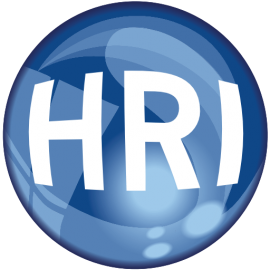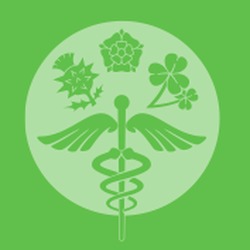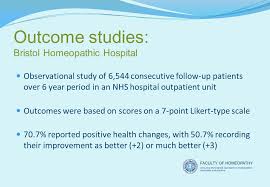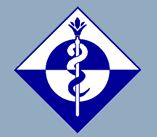|
06 May 2017 To whom it may concern. I would like to make my submission in SUPPORT of OPTIONS 1 & 2; and state my opposition to options 3 & 4. The TGA Consultation paper refers to the 2015 NHMRC Homeopathy Review. The 2015 NHMRC Homeopathy Review is presently before the Australian Ombudsman due to complaints of bias, inaccurate and highly misleading findings and therefore should not have been cited in this consultation paper.
-NHMRC said it used “standardised accepted methods” but it didn’t. -To be “reliable” NHMRC made the arbitrary decision that a trial had to have at least 150 participants and meet an unusually high threshold for quality. The NHMRC regularly funds and collaborates on trials with fewer than 150 subjects. -Investigation shows NHMRC ‘invented’ unprecedented and arbitrary rules that dismissed 171 of the 176 studies leaving 5 that were considered ‘reliable’. Of the five, one was positive for homeopathy but the NHMRC still refused to accept its findings.”
-The original Chair of the NHMRC committee, Professor Peter Brooks, was a member of the anti-homeopathy lobby group, Friends of Science in Medicine. -The NHMRC also excluded homeopathy experts from the working committee in breach of its own mandatory research standards. “The NHMRC’s job was to accurately summarise all of the evidence for homeopathy. What we ended up with was a review that was biased, ignored positive evidence and violated mandatory administrative and research standards. Not only is it bad science, it also raises major concerns regarding the validity of NHMRC reviews.” “Positive, high quality studies do exist (1), and show that homeopathy works for a number of medical conditions such as hay fever, sinusitis and cough. These studies were excluded from the findings, as were all real-world clinical studies, which consistently demonstrate the effectiveness, cost-effectiveness and safety of homeopathy in healthcare.” The NHMRC report cost taxpayers more than $800,000.
Regulatory monitoring is required to ensure public safety (e.g. adverse reaction monitoring). This includes ensuring that products sold in Australia are manufactured according to Good Manufacturing Practice. TGA’s role is to protect public safety, not make value judgments about products Australians freely choose to use as therapeutic goods. • Homeopathic Medicine is a Traditional medicine used worldwide recognized by World Health Organisation. On that basis alone it should be recognized as a therapeutic option. Under no circumstances should Homeopathy be removed as a therapeutic option. • The TGA has the ability and discretion to recognize Traditional forms of medicine and not just evidence based therefore it should continue to do so in the case of Homeopathy. • The NHMRC report set a higher standard to Homeopathy than the TGA currently use to assess efficacy and will use in the future to assess efficacy and therefore should not have been mentioned in this consultation paper as it is misleading and not relevant. • The NHMRC report is subject to a complaint to the Ombudsman and therefore should not have been cited in this consultation paper. • The UK government review cited in consultation paper was rejected by the UK Govt. and therefore should not have been mentioned to imply validity to its unaccepted conclusion. • Option 1: There is a Swiss Report on Homeopathy which stated “There is sufficient evidence for the preclinical effectiveness and the clinical efficacy of homeopathy and for its safety and economy compared with conventional treatment.” – Why is this not included in the recommendations to give perspective and balance? • Option 2: requiring scientific evidence for higher therapeutic claims will be captured in the new guidelines and should be considered. • Option 3: of exemption is completely valid if it allows for continued use with low level claims and recognition of its Worldwide Traditional use as a medicine. • Option 4: Does not recognize the use and continued endorsement of Homeopathy by governments worldwide. It is out of step with regulatory frameworks worldwide and will be contrary to the rest of the world. Australia’s close ACSS Consortium regulatory partner, Switzerland, is giving homeopathy the same status as conventional medicine by May 2017 when it comes to health insurance. The TGA consultation paper selectively excludes any mention of the Swiss situation, or the widespread inclusion of homeopathy in multiple other international jurisdictions - indicating an unbalanced approach. The TGA paper selectively excludes mention of multiple positive research published on homeopathy, including a positive Swiss Health Technology Assessment, which the TGA would have in its library.  The best studies show Homeopathic medicines work (7). Homeopathic medicine Clinical trials overview By the end of 2014, 189 randomised controlled trials of homeopathy on 100 different medical conditions had been published in peer-reviewed journals: (1) Of these, 104 papers were placebo-controlled and were eligible for detailed review: 41% were positive (43 trials) – finding that homeopathy was effective. 5% were negative (5 trials) – finding that homeopathy was ineffective. 54% were inconclusive (56 trials). Meta-analyses of homeopathy trials There have been 6 meta-analyses of homeopathy: five were positive – suggesting that there was some evidence of an effect of homeopathy beyond placebo, but more high quality research would be needed to reach definitive conclusions (2),(3),(4),(5),(7) One was negative – concluding that homeopathy had no effect beyond placebo: (6) Original conclusions from the 6 meta-analyses. Developing the evidence base – progress from 2005 to 2014. The sixth and most recent meta-analysis by Mathie et al., published in 2014, found that homeopathic medicines, when prescribed during individualised treatment, are 1.5- to 2.0- times more likely to have a beneficial effect than placebo.(7) Although the previous meta-analysis by Shang et al. continues to be referred to frequently, the 2014 study by Mathie et al. includes 151 placebo-controlled randomised trials – 41 more than Shang’s team identified in 2005, but which would have met their inclusion criteria if available at the time. This demonstrates the extent to which the 10 year-old Shang et al. paper, which now covers only 73% of the eligible trials, has been superseded by the paper by Mathie et al. (7) The TGA consultation paper makes the incorrect and biased value judgment that homeopathy is ‘not evidence based’. Truthfully, Sarah Penrose Dip.Hom.Med. AROH. AHA Australian Registered Homeopath (1) Faculty of Homeopathy | http://facultyofhomeopathy.org/research/ (2) Kleijnen, J., Knipschild, P. & ter Riet, G. Clinical trials of homeopathy. BMJ, 1991; 302: 960 | https://www.ncbi.nlm.nih.gov/pubmed/1825800 (3) Linde, K. et al. Are the clinical effects of homeopathy placebo effects? A meta-analysis of placebo-controlled trials. Lancet, 1997; 350:834–843 | https://www.ncbi.nlm.nih.gov/pubmed/9310601 (4) Linde, K. et al. Impact of study quality on outcome in placebo-controlled trials of homeopathy. J. Clin. Epidemiol., 1999; 52: 631–636 | https://www.ncbi.nlm.nih.gov/pubmed/10391656 (5) Cucherat, M., Haugh, M. C., Gooch, M. & Boissel, J. P. Evidence of clinical efficacy of homeopathy. A meta-analysis of clinical trials. HMRAG. Homeopathic Medicines Research Advisory Group. Eur. J. Clin. Pharmacol., 2000; 56: 27–33 | https://www.ncbi.nlm.nih.gov/pubmed/10853874 (6) Shang A, Huwiler-Muntener K, Nartey L, et al. Are the clinical effects of homeopathy placebo effects? Comparative study of placebo-controlled trials of homeopathy and allopathy. Lancet, 2005; 366: 726–732 | https://www.ncbi.nlm.nih.gov/pubmed/16125589 (7) Mathie RT et al. Randomised placebo-controlled trials of individualised homeopathic treatment: systematic review and meta-analysis. Systematic Reviews, 2014; 3: 142 https://systematicreviewsjournal.biomedcentral.com/articles/10.1186/2046-4053-3-142
0 Comments
|
AuthorSkilled in unravelling complex patterns of ill health, Sarah Penrose is a qualified, registered and endorsed natural health professional specializing in homeopathic medicine. Archives
December 2022
Categories |





 RSS Feed
RSS Feed



